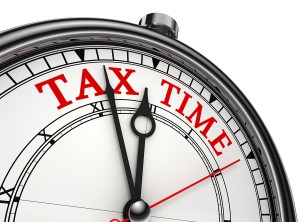The Internal Revenue Service (IRS) announced last Thursday that more than 318,000 federal workers and retirees owe more than $3.3 billion in back taxes to the federal government, a 2.6 percent jump from the previous year. This accounts to about 3.3 percent of the overall 9.8 million federal workers and retirees who are part of the civil workforce.
The average tax bill for these workers is $10,391 – the data is as of Sept. 30, 2013.
It was revealed, however, that federal employees were better at paying their taxes than private citizens. The tax delinquency rate for federal workers was 3.19 percent compared to the overall population’s 8.7 percent. Of course, some federal workers do a poorer job than others at paying their taxes.

The issue can also be found in other federal departments. For instance, the highest rates of tax delinquency are located in the National Council on Disability (11.54%), the Committee for Purchase from People Who Are Blind (10%) and the Civil Rights Commission (9.52%).
Furthermore, 821 employees of the country’s federal courts are late in paying their tax bills – it is unclear if any of these employees are judges. More than five percent of the Department of Housing and Urban Development’s (HUD) have overdue taxes.
Between only one and two percent of active duty military personnel and individuals in the Reserves and National Guard owe back taxes. According to the data, the Treasury Department had the lowest number of employees who have overdue tax bills with 1.2 percent.
Troubles with the IRS and Federal Workers
Last year, when the federal government shutdown took place, there was outcry that government workers would be shafted because they were furloughed and thus miss a paycheck – CNN reported on several cases where federal workers might even be forced to declare bankruptcy.
After the first week, Republicans and Democrats on Capitol Hill voted overwhelmingly in favor of approving back pay for furloughed government employees. President Barack Obama also supported the initiative at the time.
The IRS, meanwhile, has been engulfed in scandal over the past year when it was revealed that it had chosen certain political groups, mostly conservative and Tea Party organizations, applying for tax-exempt status for greater assessment based on their names and political themes.
These actions produced high-level resignations and several investigations, including one launched by the FBI ordered by Attorney General Eric Holder. Dozens of private lawsuits have also been filed against the IRS by conservative and Tea Party groups.
Soon after the controversy made headlines, polls found that a majority of Americans had questioned the president’s honesty and integrity – in fact, some pundits had likened him to President Richard Nixon, who had utilized the arms of government to attack his political adversaries and those he felt cost him the election in 1960 against John F. Kennedy.




